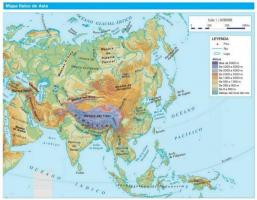THEORY of knowledge by David HUME

In this lesson from a TEACHER we explain the David Hume's theory of knowledge (Edinburgh, May 7, 1711-ibid., August 25, 1776), philosopher, historian, economist and writer of Scottish origin, and one of the main representatives of the Enlightenment. Empiricist philosopher, naturalist and radical skeptic, he has important works, fundamental in the history of Western thought.
His works include his "Treat of human nature"Published in 1739 and" Research on human understanding ", which was published in 1748. His main contribution to the history of philosophy is, without a doubt, his theory of knowledge. If you want to know more about David Hume's thinking, keep reading this article.
Index
- Summary of Hume's Theory of Knowledge
- David Hume's Modern Empiricism
- Two types of mental content: impressions and ideas
- The forms of knowledge
Summary of Hume's theory of knowledge.
Hume divides mental perceptions into "impressions" and "ideas." The former require direct contact between the subject and the object and refer to the present moment, while the latter are the product of thought and refer to the past. They are also weaker than prints.
“Here then, we can divide all the perceptions of the mind into two classes or species, distinguished by their different degrees of force or vivacity. The less strong and intense are commonly called thoughts or ideas; the other species lacks a name in our language, as in most of the others, I believe, because only for philosophical purposes it was necessary to frame them under a term or denomination general.
So let us give ourselves a little freedom, and call them impressions, using this term in a sense slightly different from the usual one. With the term impression, then, I want to denote our most intense perceptions: when we hear, or see, or feel, or love, or hate, or wish, or want ”. (An Enquiry Concerning Human Understanding)"
The modern empiricism of David Hume.
Unlike the rationalists, Hume claims that the only source of knowledge is experience, at the same time origin and limit of all knowledge. Thus, the philosopher will deny the existence of innate ideas (understood as mental contents). There are no, says Hume, ideas outside of experience.
The mind is like a blank paper, everything it contains comes from experience, which forms a set of impressions, which must not be identified with things.
David Hume's starting point will bethe study of human consciousness, leaving aside the analysis of God or the world, central questions in ancient and medieval philosophy. And this is precisely the main characteristic of modern philosophy: the subject will be the basis of all philosophical reflection.
Two types of mental content: impressions and ideas.
To better understand what David Hume's theory of knowledge is like, we are going to talk about the mental contents that the philosopher defended.
Descartes called any content of the mind an idea, but Hume will differentiate between impressions and ideas when talking about the elements of knowledge. In addition to presenting a different intensity, since impressions are stronger than ideas, they are also distinguished by their temporality. Impressions are associated with the present moment and ideas with the past.
Every idea must be associated with an impression, since the former are copies of the latter. If an idea is not associated with an impression, then it is not true. In the absence of this correspondence, the idea will be false.
"Or, to express myself in philosophical language, all of our weakest ideas, or perceptions, are copies of our most intense impressions or perceptions."
The empiricist talk about two types of prints: those of the sensation (external experience) and those of the reflection (internal experience). Ideas are classified as simple (the color of objects) or complex or a combination of simple ideas, such as the world.
Ideas, says Hume, are combined based on concrete natural laws: the law of similarity, that of space-time contiguity, and that of causality (cause and effect). Thanks to these principles, the association of ideas through imagination is possible, and this is the reason for the large number and variety of ideas.

Image: Pinterest
The forms of knowledge.
Hume is going to distinguish between relations of ideas and matters of factIn the same way that Leibniz would have done between truths of reason and truths of fact truths of reason and truths of fact.
- The first, the idea relationships, They are "the sciences of Geometry, Algebra and Arithmetic and, in short, any statement that is intuitively or demonstratively true ". They refer to objects dependent on mental activity and may or may not exist. The guide to determine the truth or falsity of the relations of ideas will be the principle of contradiction.
- In the matters of factthere is no contradiction, The same can be affirmed or denied, since they are based on the principle of causality, of which we have no impression and therefore, the cause and effect relationship is unfounded. Similarly, the future is nothing more than a prediction, since there is no impression associated with it. The principle of causality, Hume says, is nothing more than an imaginative prejudice, a psychological ruse. The sum of the experiences predisposes us to think that an event will always continue to occur in the same way, when there is really no impression associated with this idea. This thought "arises entirely from experience, when we find that any particular objects are constantly linked together."
So there are two types of knowledge: that of relations of ideas (governed by the principle of contradiction) and that of facts (which depend on the experience), and that by being governed by the law of causality, it is not possible to deduce the effect from the cause or upside down. The law of causality, therefore, is nothing more than an imaginative prejudice.
If you want to read more articles similar to David Hume's theory of knowledge, we recommend that you enter our category of Philosophy.
Bibliography
- Hume, D. Treat of human nature. Ed. Independently published. 2020
- Humw, D. An Enquiry Concerning Human Understanding. Ed. Grupo Anaya. 2007



